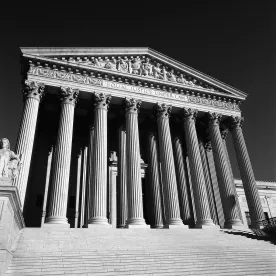The Supreme Court of the United States has been asked to hear an appeal in a case involving the circumstances in which retroactive tax legislation will be constitutional.
In Dot Foods, Inc. v. State of Washington Department of Revenue, 372 P.3d 747 (Wash. 2016), the Washington State Supreme Court upheld legislation retroactively removing a corporate income tax exemption. Although the legislature, in justifying its action, said that the retroactive legislation was intended to reflect the legislature’s initial intent, the facts did not bear that out. The exemption was consciously adopted by the legislature and, indeed, upheld by the Washington Supreme Court when the Department of Revenue attacked Dot Foods’ use of it in an earlier case.
The US Supreme Court in United States v. Carlton, 512 U.S. 26 (1994), said that retroactive tax legislation would be constitutional under the due process clause only if it was adopted for a legitimate legislative purpose and accomplished it by rational means. In Dot Foods, the Washington Supreme Court said that raising money for the state was a “legitimate legislative purpose” that justified retroactivity.
McDermott Will & Emery and Chamberlain Hrdlicka have filed an amicus brief on behalf of the American College of Tax Counsel supporting Dot Foods’ petition for certiorari. Peter Faber of McDermott and Stewart Weintraub of Chamberlain were the principal drafters. The brief argues that the Washington Supreme Court in this case, and other state courts in other cases involving retroactive legislation, have misapplied the Supreme Court’s test in Carlton and that raising revenue should not be a “legitimate legislative purpose” when it upsets reasonable taxpayer expectations and reliance on prior law. The brief points out that, in contrast to Carlton, which involved the correction of a clear legislative error that was immediately apparent upon the enactment of the reversed legislation, Dot Foods involves a taxpayer that reasonably relied on a consciously enacted exemption—one that was not enacted by mistake.



 />i
/>i
